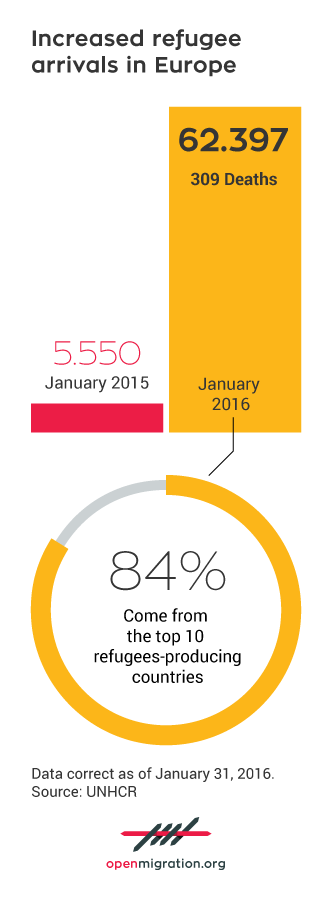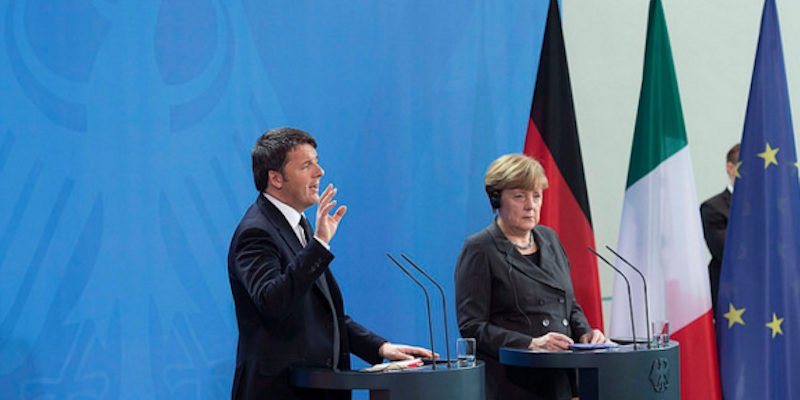Matteo Renzi was right to remind all of Europe of its collective responsibility towards the dramatic plight of migrants and refugees, during his visit to the island of Ventotene. Sea arrivals in Greece and Italy as certified by UNHCR in 2016 are more than 10 times the number of those in early 2015: 5.550 12 months ago, currently more than 62.000. It would be gratuitous to speculate about the future, but these figures are certainly impressive, especially if combined with those on the deaths at sea (320 already in 31 days).
«Europe is the greatest political victory of the twentieth century, but it is fuelled by ideals, not by the short-sightedness of those who would raise walls. Europe is in danger of collapsing when it becomes simply a set of self-interests». It is not the first time Renzi has called on Europe to accept a long-overdue responsibility. And we salute the shift that has occurred in strategy, from bombing the boats used by human traffickers to seeking a European policy to deal with a phenomenon of historic proportions.
However, an increasing number of states are strongly opposed to any shared solution. And in the current game of European arm wrestling, the back of the Italian Prime Minister’s hand is dangerously close to the table.
Italy and Greece, the latter especially, are the two doorways to the house of Europe, but if all the rooms are sealed, all the migrants will be left to throng outside, on the doorstep, and the consequences will be inevitably explosive.
«A choice must be made between Dublin and Schengen. Both agreements cannot hold today», Italian Minister of Foreign Affairs Paolo Gentiloni noted in alarm, early in January. His meaning was clear: «we need to change the regulations for asylum seekers right away».
Still, the shift that has taken place in the European political debate over just a few weeks has been amazing. How long was it between «We need to reform the Dublin Regulation» to «We need so suspend the Schengen agreement»? Find out how many times the word Dublin occurs in the news coverage of recent days. You can count them on your fingers.
What was once – and rightly so – the Italian trench, namely the adoption of a European asylum, has all but faded from the political and media radar. First, the clash over the hotspots and relocation, then the barrage of initiatives by the individual countries of northern and eastern Europe, have turned the focus to Schengen: one of the cornerstones of European identity has become an obstacle to the anti-immigration policies of individual countries. None of those who would scrap free movement within the EU have even bothered to cite fear of terrorism as a valid reason to raise walls between states. It is now being stated unequivocally: the Schengen agreement must be suspended because we don’t want any more migrants and refugees.
Over just a month, the political debate in Europe has changed its course: eyes have turned away from the future and the Dublin reform, to look back longingly to a time where the European borders were marked by walls.
Twitter: @alessandrolanni










